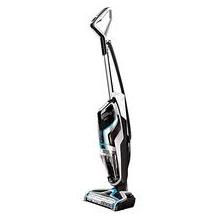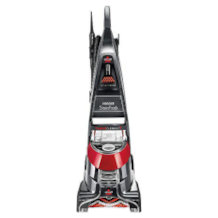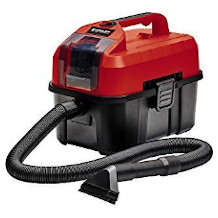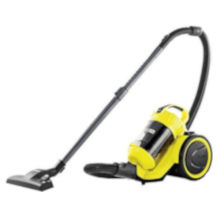Cordless vacuum cleaner purchasing advice: how to choose the right product
- What You Need to Know
- Cordless vacuum cleaners are light and compact and offer an unlimited operating radius.
- They are particularly suitable for cleaning hard-to-reach places and at locations without a power outlet nearby.
- With a practical combination device, users get a handheld vacuum cleaner and a stick vacuum cleaner in one model.
- The most important criteria for buying a cordless vacuum cleaner include suction power, battery life and charging time.
How do cordless vacuum cleaners work and what advantages do they offer?
Vacuuming is an annoying but necessary evil to keep the apartment, workplace and car hygienic. The right vacuum cleaner can make this job much easier. Battery-powered stick vacuums are a flexible alternative to corded devices that rely on electricity from the wall socket. In our battery-powered vacuum cleaner comparison, we look at which applications the battery-powered models are particularly suitable for, what advantages and disadvantages they have, and what consumers should look out for when buying.
Like corded vacuum cleaners, but without electricity
In terms of how they work, cordless vacuum cleaners hardly differ from conventional corded devices. The only difference is that the vacuum cleaner motor is powered by a rechargeable battery and not by electricity from the wall socket. Cordless vacuum cleaners are available as compact handheld vacuum cleaners, larger stick vacuum cleaners and practical 2-in-1 devices that combine both variants.
Basically, cordless vacuum cleaners are ideal for the following areas of application:
- As a secondary vacuum cleaner, complementary to a larger, corded floor vacuum cleaner.
- For vacuuming stairs
- For removing crumbs around the table and sofa
- For quick removal of pet hair, pet litter and food debris
- Remove dust and cobwebs from walls and ceilings
- For vacuuming in places without an accessible power source
Flexible vacuuming without a power outlet
Among the biggest advantages of cordless vacuum cleaners are their usually compact design, light weight and the flexibility they allow. Users can get right to vacuuming without first having to untangle a cord and find a power outlet – provided, of course, that the battery is charged. Vacuum cleaners with rechargeable batteries allow users to move freely while vacuuming without being stopped by the power cord because it either runs out or gets tangled around a piece of furniture. The user saves the change of sockets between different rooms with a battery vacuum cleaner.
In addition, the devices make it possible to vacuum in places where there is no power outlet nearby, such as in the car, mobile home, unfinished attic, garage or garden shed. Their compact design and light weight make cordless vacuums easy to transport and particularly maneuverable, so all nooks and crannies are easier to reach than with a clunky, corded floor vacuum. It’s also much easier to vacuum stairs. Compared to corded vacuums, most cordless models also operate more energy efficiently and quietly.
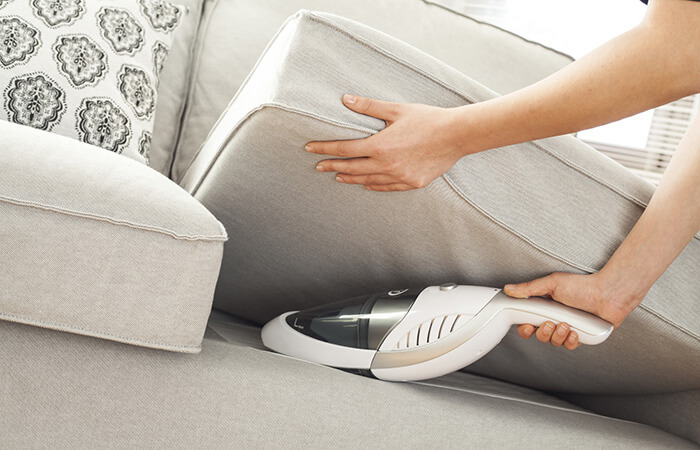
Of course, cordless vacuum cleaners don’t only have advantages, otherwise they might have completely replaced the corded variety long ago. Although they have greatly improved in terms of their boozing power in recent years, cordless vacuum cleaners still can’t quite keep up with the electric-powered models in this regard, especially when vacuuming high-pile carpets. And users of battery-powered vacuum cleaners are not completely independent of the power outlet either. After all, the battery needs to be charged at a power source. In addition, the battery runtime is limited to ten to 45 minutes, depending on the model. The space in the collection container is also limited, which is due to the compact design of the battery-powered vacuum cleaners.
Pro Points
- Unlimited action radius
- No cable tangle
- No need to plug in before use
- Very energy efficient
- Comparatively quiet
- Low weight
- Compact and space saving
- Maneuverable
Drawbacks
- Rather low suction power
- Partially quite short battery capacity
- Small collection container
The most important purchase criteria: This is what you should look out for
There are many different cordless vacuum cleaner models on the market. To give consumers a little guidance in their search for the best cordless vacuum cleaner, we present some important criteria below that they should look out for when making a purchase.
Battery power and charging time
It depends on the battery power how long users can vacuum with the device until the battery is empty and needs to be recharged. Ideally, the vacuum cleaner is equipped with a lithium-ion battery. This modern type of battery is currently the most powerful. In contrast to the older nickel-metal hydride batteries, lithium-ion batteries have a significantly lower self-discharge rate and can be recharged up to three times faster.
The maximum operating time depends on the battery and the power level used. The average runtime for common cordless vacuum cleaners is 20 minutes. This is quite sufficient for compact handheld vacuum cleaners that are designed for short use.
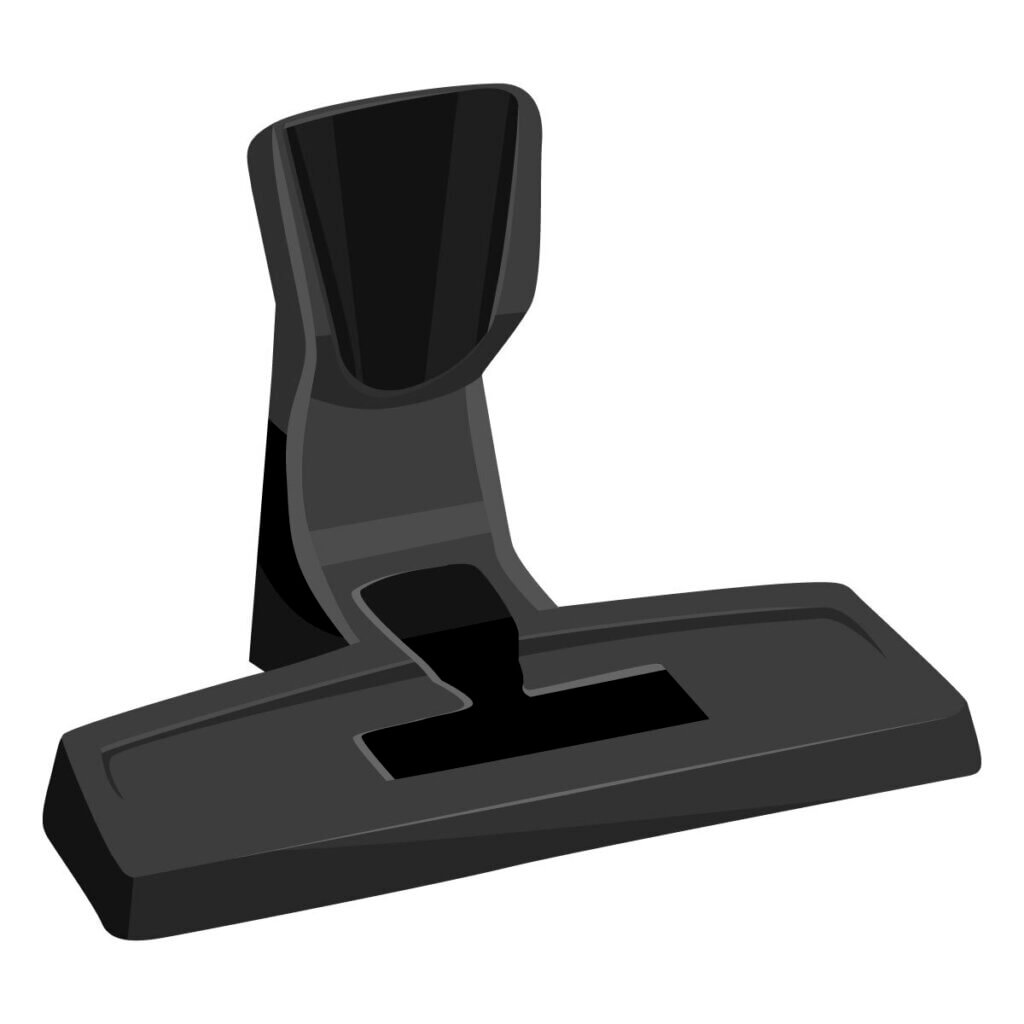
However, if you want to use your cordless vacuum cleaner regularly for vacuuming a larger apartment, you have to make sure it has a correspondingly longer operating time.
The battery charging time, on the other hand, should be as short as possible. For very fast devices, it is less than an hour, while slow vacuums need up to 16 hours to fully charge. Consumers should also make sure that a charging station is included in the scope of delivery. Some models also come with a spare battery.
Suction power
In terms of suction power, cordless vacuum cleaners can’t quite keep up with corded models. With current battery technology, the necessary batteries would be too large and heavy to provide a similar level of power as corded models (1,000 to 2,000 watts). For most cordless vacuum cleaners, the suction power is between 100 and 500 watts. Despite the lower suction power, most modern cordless vacuums provide satisfactory cleaning performance. Some models compensate for the lack of wattage with rotating brushes that whirl up dirt from the floor. Robot vacuums also use this technology. Many cordless vacuum cleaners also have multiple power settings. At a higher level, they provide more suction power, but also consume more energy in the process, so the operating time is reduced.
Testing the suction power with cat litter
If you want to test the suction power of your cordless vacuum cleaner, you can use it to suck up a handful of coarse cat litter, for example. Good cordless vacuum cleaners with sufficient suction power should master this task without any problems, while weaker models will leave grains behind even after repeated vacuuming over them.
The dimensions and weight
Cordless vacuum cleaners are designed to be as flexible as possible. Therefore, they should also be particularly light and handy. Most models weigh between 0.8 and 3 kilograms. In contrast, corded vacuum cleaners weigh around 4 to 10 kilograms.
Cordless handheld vacuum cleaners are particularly compact and therefore convenient to transport. But the slightly larger stick vacuum cleaners are built slim and space-saving compared to corded upright vacuum cleaners.
The handling
Another important purchase criterion is the handling. In order to be able to clean hard-to-reach places with the cordless vacuum cleaner without any problems, it should be particularly maneuverable. Ideally, it should also be intuitive to operate. This also includes that the collection container can be emptied easily and the filter can be changed without complications.
The collection container and its volume
Cordless vacuums with a bag are a rarity. Typically, cordless vacuum cleaners are bagless and equipped with a dirt collection container. On the one hand, this should not detach itself from the device and on the other hand, it should be easy to remove and empty at the touch of a button. If you buy your cordless vacuum cleaner from a specialist store, you can test how well the collection container can be removed before you buy it.
In addition, the collection containers of different models differ in their capacity. Common cordless vacuum cleaners have a collection container with a volume of 200 milliliters to one liter. The smaller the container, the more frequently consumers have to empty it. Especially vacuum cleaners that are used in larger apartments should therefore have a somewhat larger collection container of at least 500 milliliters.
The filter system
Most cordless vacuum cleaners are bagless and therefore work with the so-called cyclone technology. This means that they separate the dust and dirt particles from the air with the help of centrifugal force. Since this separation process is very efficient, many cordless vacuum cleaner manufacturers completely dispense with an additional filter system. Battery vacuum cleaners with a filter system can be divided into permanent and replaceable filters. Permanent filters are washable and can therefore be used permanently, while replaceable filters have to be replaced regularly and thus cause follow-up costs. Depending on the model, a filter costs about 5 to 20 euros.
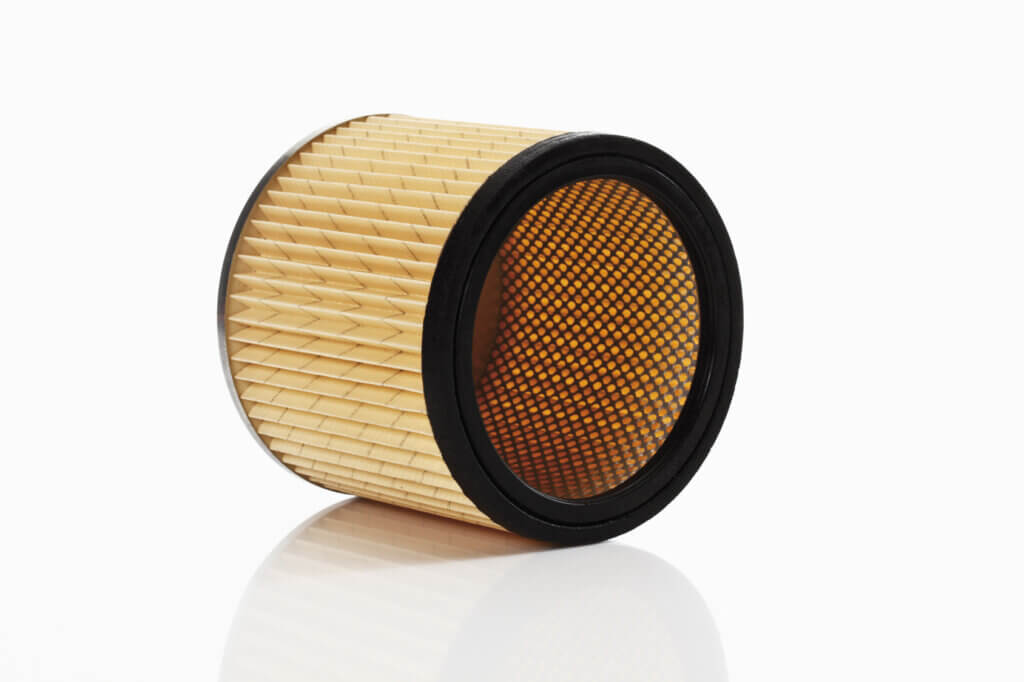
The operating volume
Since the cordless vacuum cleaner is in the immediate vicinity of the head during use, the operating volume should not be too high. According to an EU regulation, vacuum cleaners that came onto the market after October 2017 must not exceed 80 decibels during operation. This is roughly equivalent to the volume of a lawn mower. Very quiet devices produce a volume of 60 decibels, which is comparable to a normal conversation at room volume.
Different attachments
Different nozzles are suitable depending on the intended use. Many models therefore include several nozzle attachments in the scope of delivery. Some handheld vacuums also come with an extension hose that allows users to effortlessly clean surfaces under furniture. The most common nozzle attachments include the following:
Floor nozzle
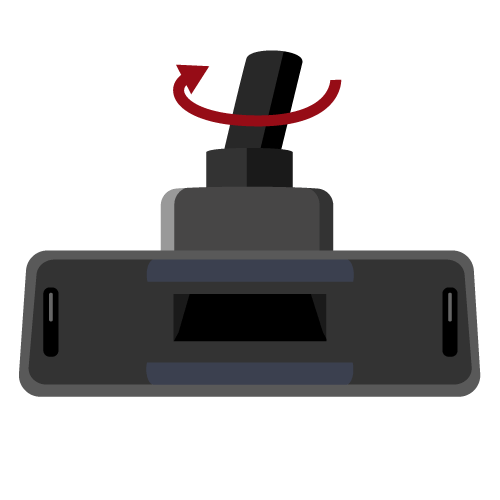
As with corded vacuum cleaners, the floor nozzle, also called a combination or universal nozzle, is standard equipment on cordless upright vacuum cleaners. It is equipped with retractable brush strips and is thus suitable for cleaning smooth hard floors as well as vacuuming carpets.
Crevice nozzle

The so-called crevice nozzle is characterized by its long and slim shape, which makes it ideal for cleaning gaps and narrow crevices, for example in sofa nooks, between car seats or behind pieces of furniture. It is standard equipment among the attachments on handheld and upright vacuum cleaners.
Upholstery nozzle

A so-called upholstery nozzle is recommended for vacuuming smooth textile surfaces such as mattresses, upholstered furniture and car seats. It is usually slightly smaller than the floor nozzle and equipped with short soft brushes that pick up and remove lint, hair and crumbs from the fabrics.
Find the right cordless vacuum cleaner for every area of application
Like corded vacuum cleaners, cordless vacuum cleaners can be divided into different types, each suitable for different applications.
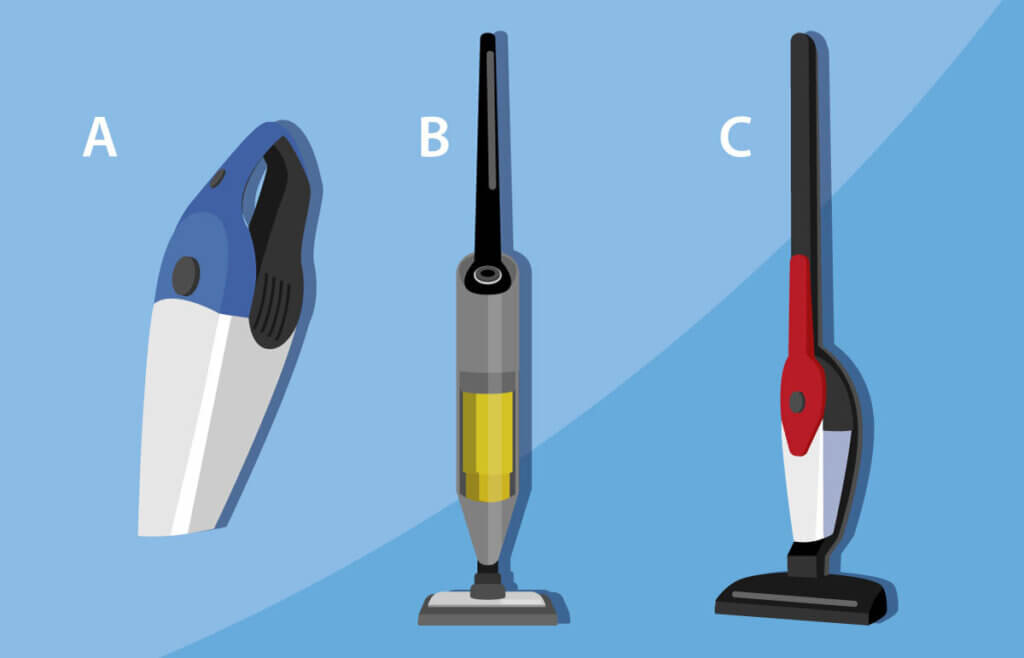
Compact handheld vacuum cleaners
Classic handheld vacuum cleaners are particularly compact and lightweight. They usually consist of an elongated housing with a nozzle, motor, collection container and handle without a handle. They are, so to speak, the electric version of a dustpan and hand brush.
They are well suited for spontaneous use and for vacuuming small areas, such as in the car, on the sofa, under the bed, in hard-to-reach corners of the room or on the table. For the latter, there are special handheld vacuum cleaners with particularly narrow nozzles for thoroughly vacuuming corners, edges and ledges. But normal cordless handheld vacuum cleaners, which usually also come with narrow nozzles, can also be used well as table vacuum cleaners. In addition, the small cordless devices are comparatively inexpensive. Most cost between 30 and 60 euros. The most popular manufacturers include Siemens, Bosch, AEG and Philips.
However, cleaning large surfaces, especially floors, with a small handheld vacuum cleaner is very tedious and harms the back. For this, users should better resort to a larger model with more suction surface and handle for a more back-friendly posture. Accordingly, handheld vacuum cleaners are mainly suitable as a supplement to a floor vacuum cleaner.
Pro Points
- Good for use as a table vacuum cleaner
- Very compact and lightweight
- Easy to transport
- Ideal for quick vacuuming of small areas
- Comparatively cheap
Drawbacks
- Unsuitable for larger areas
- Not gentle on the back
Maneuverable stick vacuum cleaners
A back-friendly, slightly larger alternative to cordless hand vacuums are cordless stick vacuums, also called stick vacuums. Their shape resembles that of a broom handle. A narrow housing with a motor and a collection container is integrated into the handle.
Unlike handheld vacuum cleaners, stick vacuum cleaners allow you to vacuum the floor in an upright, back-friendly position. At the same time, they are more compact, lighter and, thanks to their flexible joint, more maneuverable than common corded floor vacuums, making it easier to clean corners and tight spaces in the home. In smaller apartments, cordless upright vacuum cleaners are perfectly suitable as a substitute for a corded upright vacuum cleaner.
However, for vacuuming larger living spaces, a corded model is recommended due to the limited battery life. Depending on the model and manufacturer, the prices for a cordless stick vacuum vary greatly. Most popular models cost between 50 and 600 euros. In the upper price segment, you can find devices from the Dyson brand, among others, which is known for particularly high-quality and powerful bagless vacuum cleaners.
Pro Points
- Back-friendly vacuuming
- Lighter and more compact than conventional vacuum cleaners
- Suitable as an alternative to a corded floor vacuum cleaner
- Integrated handheld vacuum cleaner is good to use as a table vacuum cleaner
- Well suited for both small and larger areas
Drawbacks
- Less well suited for larger homes
Practical 2-in-1 models
If you can’t decide between a hand vacuum and a stick vacuum, it’s best to reach for a practical battery 2-in-1 vacuum cleaner. Such combination devices combine both battery vacuum cleaner types and thus their advantages in one device.
Visually, these models look very similar to upright vacuum cleaners. However, the motor unit and the collection container are not permanently mounted on the stick, but are located in a handheld vacuum cleaner attached to it. Users usually remove the latter simply by pressing a button, and the stick vacuum cleaner becomes a hand vacuum cleaner.
However, high-quality models with long battery life are sometimes very expensive compared to simple handheld or stick vacuums. Users should budget at least 150 euros for the purchase. Popular manufacturers include Dyson, Severin and Hoover.
Pro Points
- Two vacuum cleaners in one device
- Back-friendly work
- Lighter and more compact than conventional floor vacuums
- Suitable as an alternative to the corded floor vacuum cleaner
Drawbacks
- Partially high purchase price
Special types of cordless vacuum cleaners
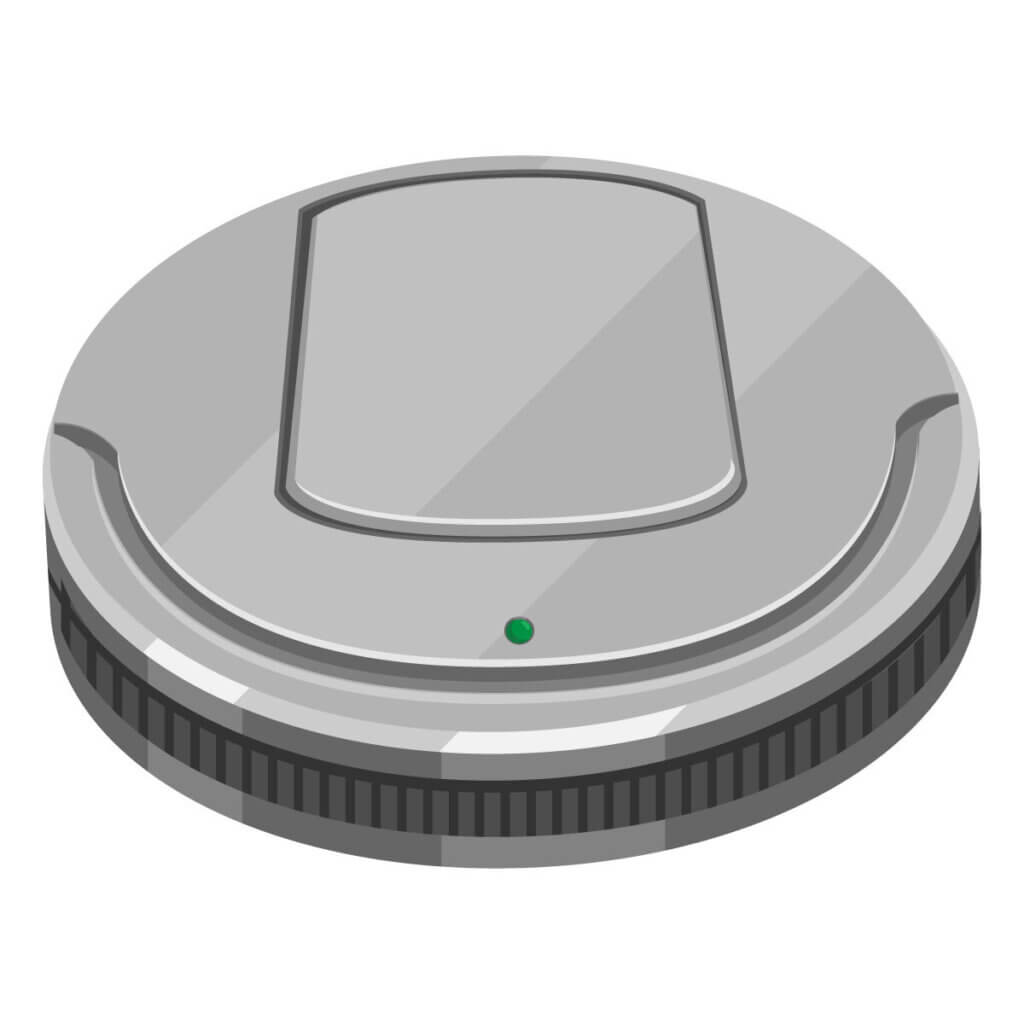

In addition to the aforementioned cordless vacuum cleaner types, consumers can also find some more specialized models on the market. These include, among others, the independently operating robot vacuum cleaners. These are basically cordless in order to be able to move around the room as freely as possible. Convenient: Many vacuum robots automatically drive to the corresponding charging station when the battery level is low.
In addition, there are so-called wet-dry vacuum cleaners as cordless models. These are vacuum cleaners that can easily suck up liquids in addition to dust and dirt particles. For this purpose, they are equipped with special components and a water collection tank. Wet-dry vacuum cleaners with rechargeable batteries are available as compact handheld vacuum cleaners or maneuverable stick vacuum cleaners. In addition, there are wet-dry vacuums in the form of large floor vacuums for commercial use or for significant soiling. However, the latter are usually corded. With a rechargeable battery, they are more suitable for short uses due to the usually very short runtime.
Practical additional features
Especially cordless vacuum cleaners from the higher price segment are often equipped with additional features. These include, for example, self-cleaning floor nozzles. These cut up hair and long dust fluff caught in them and then vacuum them up. This saves users having to clean the nozzle regularly. Models with LED lighting in the floor nozzle are also practical. This allows dark areas to be illuminated so that dirt is more visible and users do not miss anything.
In order not to be suddenly surprised by the empty battery during vacuuming, it is advisable to make sure when buying that the selected model is equipped with a charge indicator. Most often, this is a green LED light that lights up when the battery is fully charged. Some models additionally display the remaining battery runtime. A wall mount included in the scope of delivery is also practical, allowing users to attach their cordless vacuum cleaner to the wall easily, safely and in a space-saving manner.
Modern cordless stick vacuum cleaners or combination devices from the higher price segment are sometimes equipped with a wiping function, so that users can clean their floors with them not only dry, but also wet. For this purpose, they usually come with a special mop attachment with an integrated water tank.
Useful tips on the use of cordless vacuum cleaners
Questions also often arise regarding the use of a cordless vacuum cleaner. We answer some of the most important ones under this section.
What do I have to consider as an allergy sufferer?
Most cordless vacuum cleaners are vacuum cleaners without a bag. This means that instead of a dust bag, they are equipped with a dust container. Accordingly, users do not have to buy additional dust bags, but only empty the container regularly. While this is good for the wallet and the environment, this system is not very suitable for allergy sufferers. This is because it is impossible to avoid coming into contact with dust when emptying the container.
Although most modern cordless vacuum cleaners are equipped with powerful filters that reliably keep dust particles and allergens in the collection container, bagless devices are rather unsuitable for allergy sufferers when they have to empty the device. However, if another non-allergic person can take over the task of emptying it, cordless vacuums with powerful filter systems are definitely a possibility for allergy sufferer households.
Can I vacuum up liquids with a cordless vacuum cleaner?
Consumers should always use a special wet-dry vacuum cleaner to suck up liquids. Otherwise, they run the risk of the vacuumed liquids clogging the vacuum cleaner or even damaging the inside of the device. Wet-dry vacuums are available in both corded and cordless versions with battery operation.
How do I care for my cordless vacuum cleaner?
The job of a vacuum cleaner is to remove dust and dirt. The vacuumed material collects inside the device. To prevent germs and bacteria from forming there and causing unpleasant odors, users must clean their cordless vacuum cleaner thoroughly on a regular basis. In addition, larger objects or liquids can clog the suction tube, causing the vacuum cleaner to lose suction power. The following tips will help with care and cleaning:
- Do not aspirate large food residues and liquids, as these can lead to mold growth and sticking.
- It is best to empty the collection container after each use to keep the suction power constant.
- About once or twice a month, rinse the collection container with warm water and a little vinegar and dry it well.
- Clean all nozzles, suction openings and hoses about once a month. Make sure that no liquid gets into the interior of the unit.
- Depending on the frequency of use, wash or replace the vacuum cleaner filter every one to three months.
- For a pleasant smell, use a so-called vacuum cleaner deodorant (available as sticks, beads or in liquid form), alternatively vacuum in some commercially available washing powder.
How do I properly dispose of the battery vacuum cleaner?
According to the new Electrical Waste Act, which has been in force in Germany since 2015, old electronics must be disposed of properly, otherwise you could face a fine. This also makes perfect sense, as many electrical devices contain substances that are hazardous to health and the environment and can be released if disposed of incorrectly. Consumers can dispose of their old cordless vacuum cleaners properly in the following ways:
- Return to specialty stores as well as wholesale and online retailers.
- Drop-off at a recycling center
- Delivery to a private collection service
- Sale to hobbyists via online platforms such as eBay
What does disposal cost?
The disposal of electrical appliances is free of charge. Both stationary and online retailers are obliged to take back the devices according to the Electrical Waste Act.

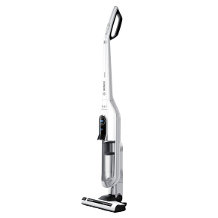
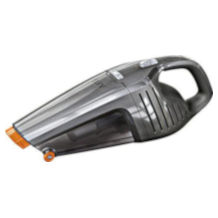
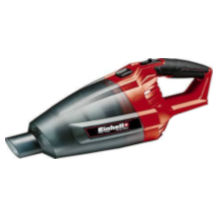
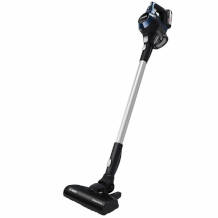
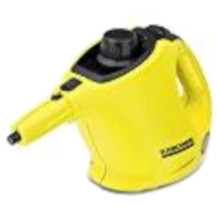


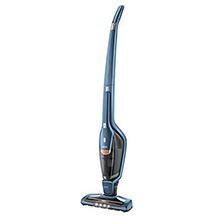
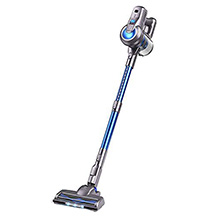

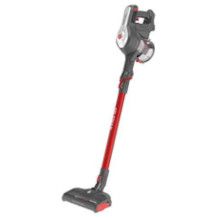
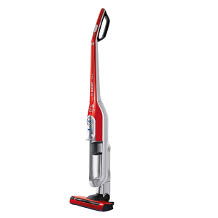
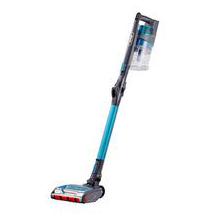

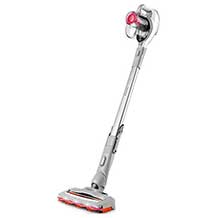
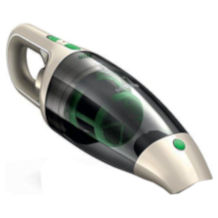
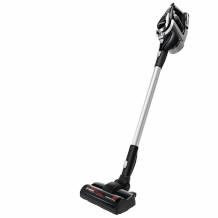
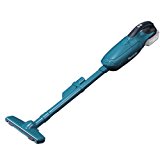
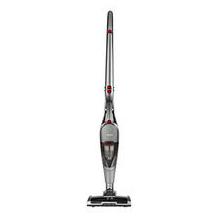
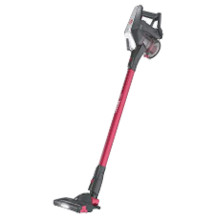
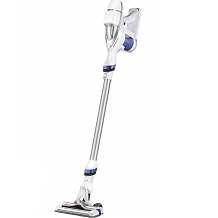

 604 reviews
604 reviews

